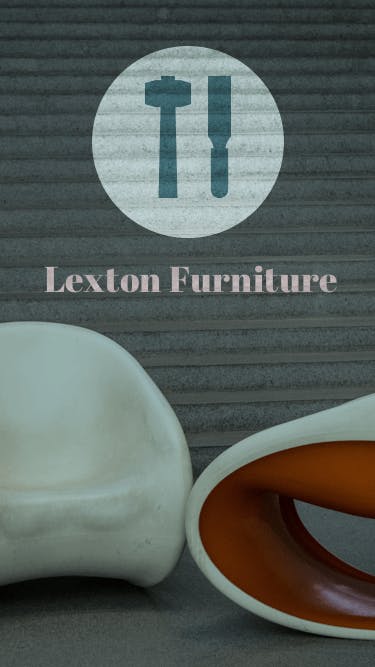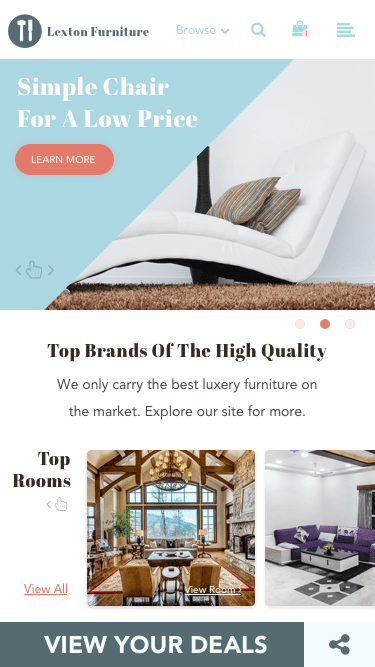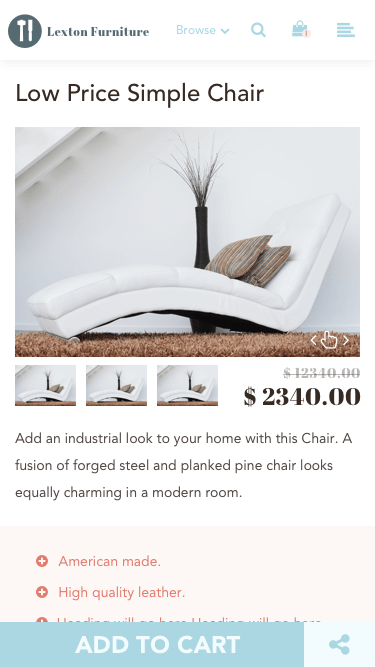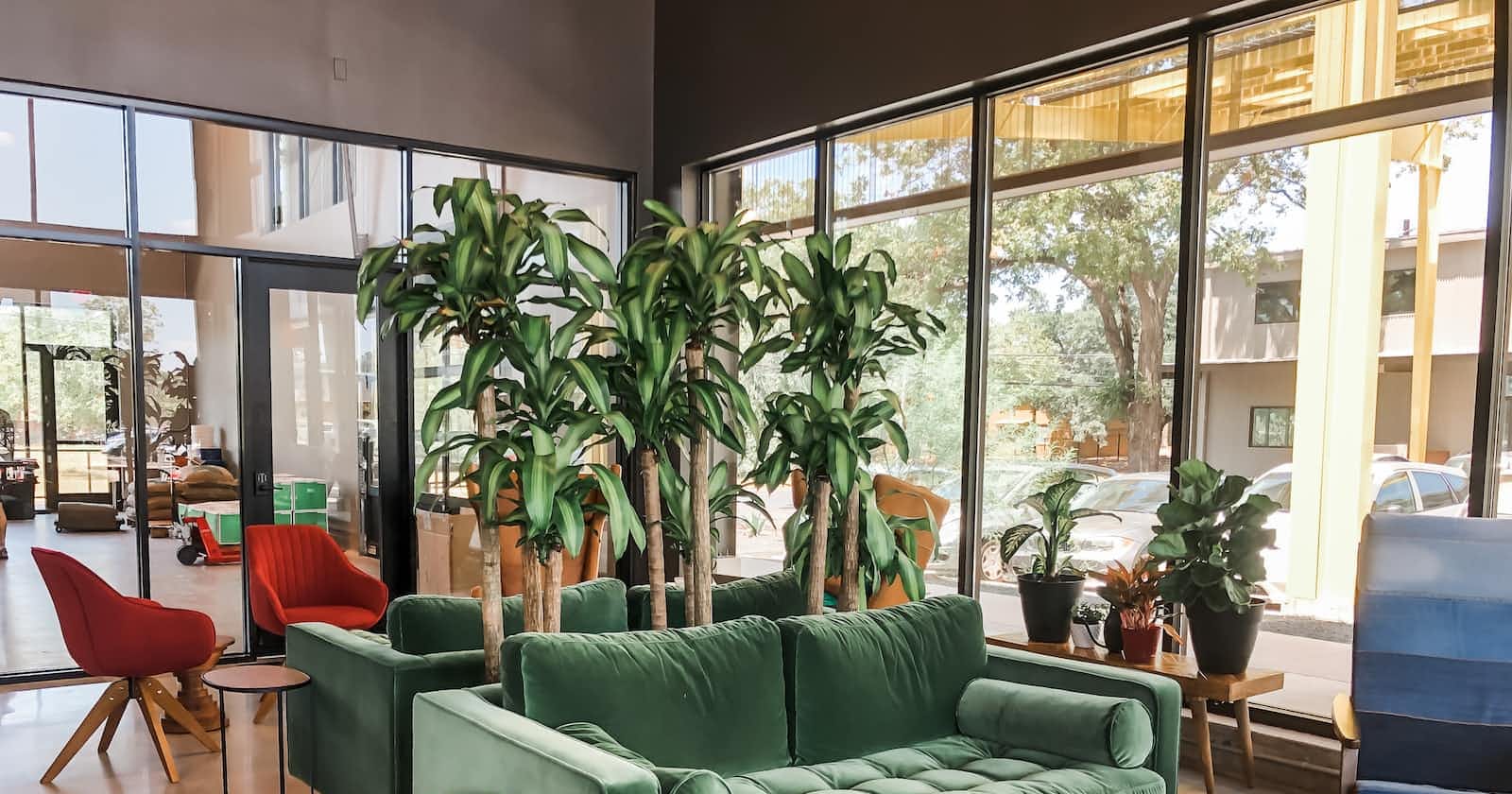
E-Commerce Evolution Through Mobile Integration
Case Study: Lexton Furniture Mobile Application
The Result
Lexton Furniture, a high-end furniture e-commerce retailer, embarked on a digital transformation journey to extend its reach through mobile platforms. Recognizing the shift towards mobile-first shopping experiences, the company aimed to create an app that would not only encapsulate the brand's essence of sophistication and simplicity but also offer a seamless transition between its existing Shopify website and the new mobile application.
Project Background
Previously confined to a traditional e-commerce setup with a presence on Facebook and Twitter, Lexton Furniture identified the need to tap into a broader market. The project's inception was marked by a clear objective: to bridge the gap between the convenience of mobile shopping and the luxury furniture retail experience.
Research and Analysis
In-depth market research was conducted to understand the nuances of mobile user behavior and expectations in the furniture retail sector. The analysis revealed that customers sought intuitive design, personalized shopping experiences, and efficient checkout processes, especially when shopping for high-ticket items.

Insights
The research pointed towards a customer-centric approach that prioritized:
Easy navigation and an elegant interface.
Personalized product recommendations and room planning tools.
An innovative shopping cart experience geared towards upselling and accessory pairing.
Strategic Approach
The core strategy hinged on two main pillars:
Brand Continuity: Ensuring the app's look and feel was in harmony with the existing brand image, with a focus on a clean, modern aesthetic.
Enhanced User Experience: Offering an engaging and interactive app interface that allowed customers to visualize their furniture choices within their personal spaces.
Business Requirements
The transformation required a multifaceted approach:
Design and develop a mobile app that resonates with Lexton Furniture's branding.
Integrate upsell and cross-sell functionality within the app's checkout process.
Enable a fluid shopping experience across devices, with cloud synchronization for cart and preferences.
Solution Implementation
The new mobile app featured:
A sophisticated design with intuitive UI/UX, reflecting Lexton Furniture's brand palette and typology.
A custom-developed shopping cart that emphasized additional warranties and custom accessories.
Room customization tools that assisted users in visualizing furniture in their home environment.



Iteration and Improvement
Following the initial launch, continuous improvements were made, informed by user feedback and behavior analytics. These included:
Streamlining the app's performance and checkout process.
Enhancing the product recommendation engine.
Expanding marketing strategies to include Google search and display ads, as well as influencer partnerships.
Impact
The app's release marked a significant boost in customer engagement metrics:
Increased average session durations indicated higher user engagement.
Higher conversion rates were observed, with a notable rise in upsell accessory sales.
Customer satisfaction scores improved, reflecting the success of the personalized shopping experience.
Conclusion
The successful integration of Lexton Furniture's Shopify platform into a bespoke mobile app represented a pivotal step in the company's growth trajectory. By prioritizing user experience and brand consistency, Lexton Furniture has set a new benchmark for luxury furniture retailers in the digital space. The app's success has opened new avenues for customer engagement and set the stage for further innovation in e-commerce functionality.

